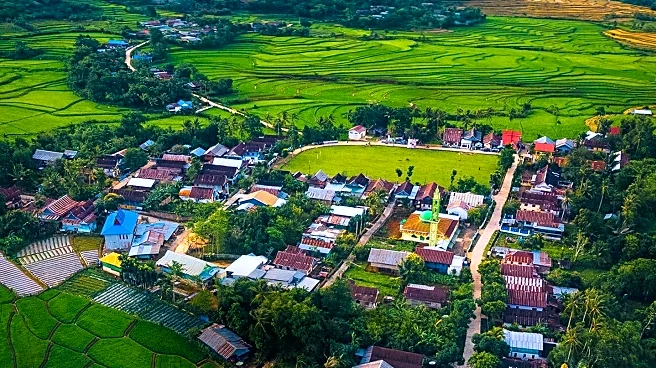What's Happening?
The World Tourism Organization (UN Tourism) has introduced its first set of Massive Open Online Courses (MOOCs) focused on rural tourism development. These courses, available in English and Spanish, are
designed to equip individuals working in rural destinations with the knowledge and tools needed to create sustainable, inclusive, and community-led tourism experiences. The courses cover topics such as product development, marketing for rural areas, and design thinking for rural tourism development. Participants will learn to assess and leverage rural tourism assets, design authentic offerings, and use marketing tools to reach relevant audiences. The initiative aims to empower rural communities to lead their own development journeys and thrive on their own terms.
Why It's Important?
The launch of these MOOCs represents a significant step in promoting sustainable tourism practices in rural areas. By providing free access to practical and user-friendly courses, UN Tourism is enabling a wide range of stakeholders, including tourism entrepreneurs, destination managers, and local officials, to enhance their skills and knowledge. This initiative supports the development of tourism products that reflect local culture and values, fostering economic growth and social inclusion. The courses also emphasize the importance of co-creation and human-centered design, encouraging participants to work alongside local communities to develop tourism solutions that are both innovative and sustainable.
What's Next?
The MOOCs are open for enrollment year-round, offering flexibility for participants to learn at their own pace. As more individuals and communities engage with these courses, it is expected that rural tourism will continue to evolve, with new and innovative approaches emerging. The courses integrate global case studies and best practices, providing learners with insights that can be applied to real-world challenges. This ongoing education and capacity-building effort will likely lead to increased collaboration and knowledge-sharing among rural tourism stakeholders, further enhancing the impact of tourism on rural development.











